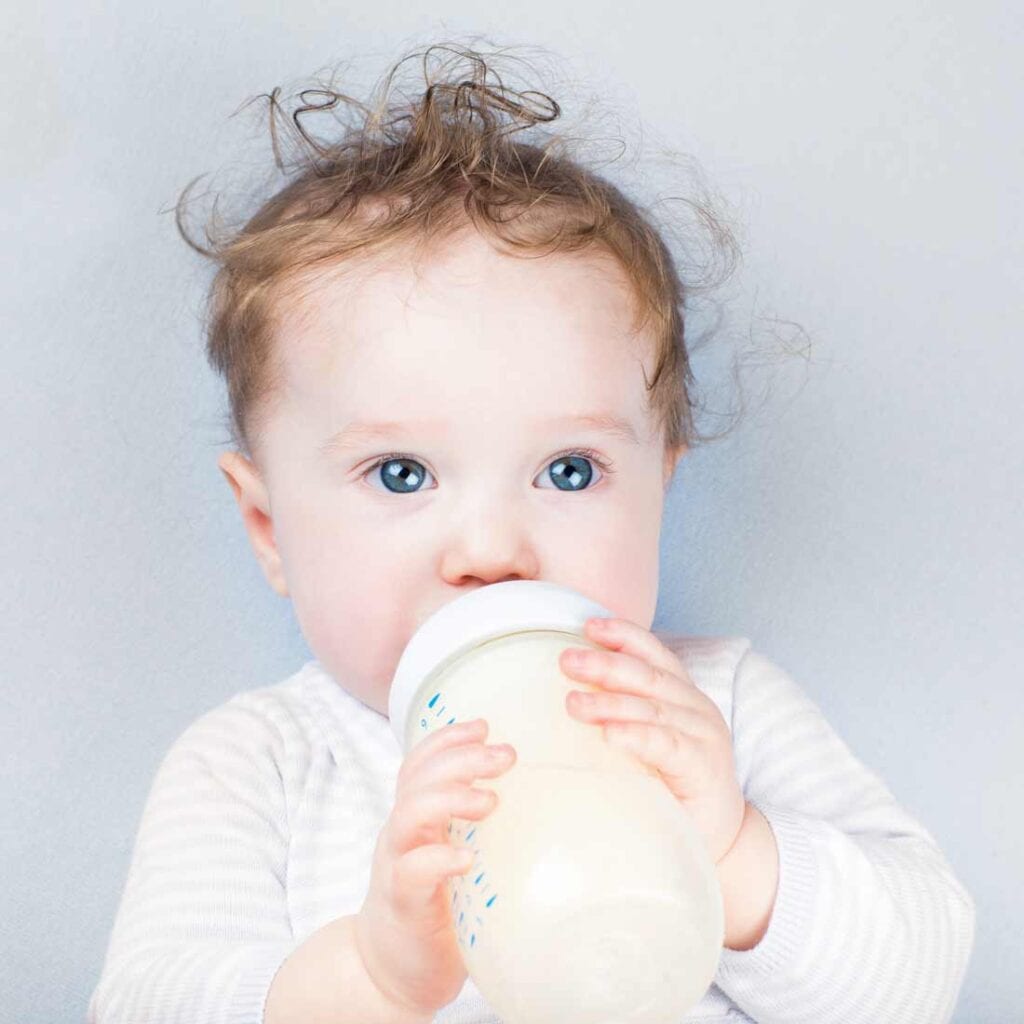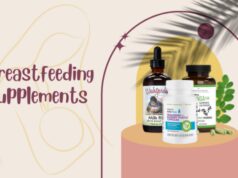Many new mothers find breastfeeding quite confusing, especially when it comes to a decision when to stop.
The World Health Organization (WHO) recommends feeding babies entirely on breast milk for the first six months of their life and then combining it with complementary foods until the age of two.
The reason for this is that breastmilk is not just food but also a natural comforter and immunity-boosting component.
Anthropologists say the natural age for humans to stop breastfeeding is higher than two years.
There is even some evidence of our ancestors being breastfed until the ages of six or seven.
Nowadays, over 60% of mothers in developed countries give their babies some formula before they reach six months, even though WHO guidelines do not recommend it.
When is the right time to start weaning the baby?

Weaning is a process of stopping feeding the baby with breast milk. In most cases, the first step towards weaning is adding complementary foods alongside breast milk when a child is around six months old. This process should continue until breast milk is fully replaced by some other foods and drinks.
“After six months, your baby will need higher levels of certain nutrients – like iron, zinc, and vitamins B and D – which she cannot get from your breast milk or her own reserves alone,” explains the UK nurse Sarah Beeson.
“But solid food will only complement your baby’s milk intake to start with and replace it gradually. Breast milk should remain her major source of nutrients for many months to come.”
An average seven-month-old still gets 93% of her calories from milk. Also, at 11 to 16 months, milk might still provide around half the daily calorie intake.
“Mothers often think breast milk isn’t so important if their baby has started eating solids, but there is no better milk for her, however old she is,” Sarah explained.
It is essential to keep in mind that the entire weaning process can take as long as mother and baby want it to: “When to stop breastfeeding is your choice,” she said. “Don’t feel pressured by what your friends and family members say. All that matters is what feels right for you and your child.”
How to stop breastfeeding

When you decide to begin with weaning your baby off breast milk, it is best to do it gradually. If you do it suddenly, you are at risk of engorgement, and it might be difficult for both you and the baby emotionally.
Do you need to stop breastfeeding?
Sometimes mothers wrongly think they need to stop breastfeeding when they actually don’t.
In case you are returning to work, breastfeeding could be a great way to maintain intimacy during this significant change in your life.
You can also express milk for your baby at work and keep nursing sessions at the beginning and at the end of the day.
You could express milk to take or send home if you have to travel without your baby.
If you get ill, it does not mean you must stop breastfeeding either – read the advice on breastfeeding while you are sick and always consult with your healthcare professional.
What happens if you stop breastfeeding before six months

In case you are unable to continue breastfeeding until the six-month mark and want to try weaning, begin with cutting out one breastfeed each day and replace it with a bottle of formula.
“Start with the mid-day feed. Babies are able to identify the scent of their mom’s milk nearby, so try asking your partner or a friend to give your child the bottle while you are staying in another room,” says Sarah.
“Keep in mind that good hygiene is important when preparing feeds. Your baby might take fewer feeds of expressed breast milk than from the breast during, so do not force her to take more milk than she wants.“
Soon, your breasts will start to feel full and tender since your body is adjusting to producing less milk. If this becomes too uncomfortable, express a little breast milk to relieve that discomfort but not too much since you do not want your body to start producing more.
When your body gets used to this new volume, which usually happens after a few days, cut out one more feed each day. Repeat this process until you are no longer breastfeeding.
“I had complications after my first birth, which meant I lost a lot of weight very fast, and I also suffered from mastitis. My supply was low, and at three months, I had to stop,” says Jennifer, mother of two.
“I swapped one feed at a time, so I did not struggle too much physically, but I found it quite hard mentally.”
If you want to maintain the intimacy and all the benefits of breastfeeding, try partial weaning. Only some of the feeds are replaced with a formula that way.
Stopping breastfeeding naturally over time

If you decide to let your baby choose when to stop breastfeeding (better known as baby-led weaning or natural-term breastfeeding), the weaning process will be slow and gradual.
Over time, her feeds will become shorter and less frequent, while some mothers say their babies simply lose interest one day.
“My daughter self-weaned at four,” said Sarah, mother of one. “She gradually slowed down and hardly fed at all from three-and-a-half.”
“Baby-led weaning was right for me because my son had never had formula or a bottle. I didn’t want to stop suddenly and deny him,” says Kelly, mum of one. “He lost interest at two-and-a-half. It was the best scenario for us, even though I was quite emotional.”
Stop breastfeeding quickly

Even though it is best not to stop breastfeeding suddenly, sometimes it’s necessary for health reasons, or because mother and baby can’t be together.
If the baby has been breastfed until this point, you will need to express milk in order to avoid your breasts becoming uncomfortably engorged. Some women find a breast pump the easiest for this. Remember to only express enough to ease any discomfort.
Your breasts might feel swollen and tender at first, but they will adapt.
Taking paracetamol or ibuprofen can help to relieve any pain.
Be sure to always follow the manufacturer’s and pharmacist’s guidance.
Breast Milk Alternatives

Breast milk stands as an extraordinary and unparalleled source of nourishment for newborns, encompassing an exquisite amalgamation of vital nutrients and protective substances. The realm of scientific investigation consistently reinforces the manifold health advantages of breastfeeding, which extend not only to infants but also to their mothers.
The elixir of breast milk bestows upon the growing infant indispensable nourishment, fortifying their immune system, nurturing their cognitive development, and contributing to their overall physical and mental progress.
The magnificence of breast milk lies in its ability to furnish essential nutrients, antibodies, and bioactive components that bolster the baby’s defenses against infections, diseases, and allergies.
The intricate harmony of these elements ensures optimal brain development, fostering a strong foundation for the child’s future growth and well-being.
While commercially available infant formulas, such as those found at richter.am, endeavor to provide fundamental nutrition for infants, they inevitably fall short in replicating the dynamic and personalized composition of breast milk. The uniqueness of breast milk is unmatched, tailoring its contents to the individual needs of the baby at each stage of development.
When contemplating alternative feeding methods, it is of paramount importance to consult healthcare professionals for expert guidance and to ensure that any chosen infant formula meets stringent safety standards.
Nonetheless, if circumstances allow, embracing the path of breastfeeding remains the most advantageous choice for nurturing a baby’s overall health, growth, and emotional well-being.









